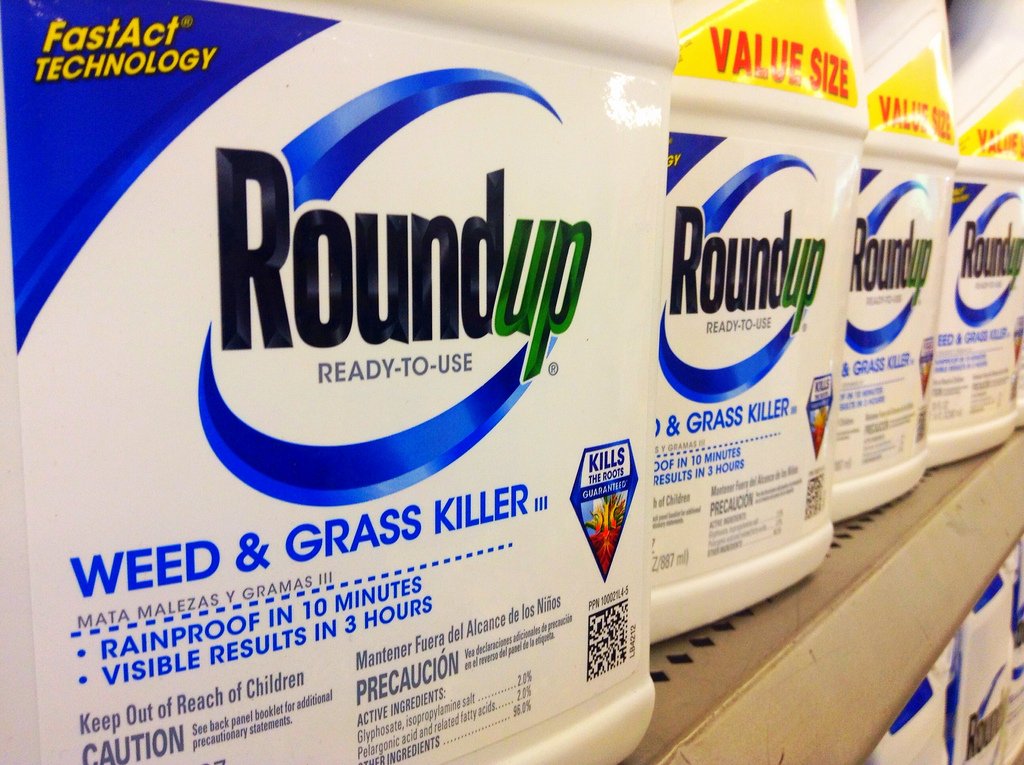California is becoming the first state to require popular weed killer Roundup to come up with a label warning that it is known to cause cancer. Roundup’s main ingredient is glyphosate, a chemical that will appear on California’s list of potentially cancerous chemicals. With the new addition, Roundup may be required to add a warning label on their product.
Glyphosate is a chemical that Monsanto introduced it in 1974 as an effective way of killing weeds while leaving plants and crops intact. Dues to efficiency, glyphosate has been successful due it being sold in 160 countries worldwide. In California, U.S.’ leading farming state, farmers use it on 250 types of crops. With such a large market, should the Roundup indeed contain a cancer-causing chemical, then it is understandable as to why regulators are pushing so hard for Roundup to be issued warning labels.
Roundup has responded by doing everything it can to prevent having to put a label on their products. Monsanto, the chemical’s maker, has filed an appeal after losing in court to block the labeling. Monsanto argued that Roundup does not cause cancer and that a warning label on their products will harm the company’s business.
State regulators are still deciding if there is a high enough amount of glyphosate in Round to pose a risk to human health. Monsanto is justified in arguing against the compulsory warning label on the grounds that without verification as to whether there is a high enough chemical dose to warrant a warning label, a warning label could be hurting business despite no detrimental health impacts.
There has been some evidence, as presented by Michael Baum, an attorney who represents more than 300 people claiming a loved one who became sick or died from exposure to Roundup. If glyphosate does indeed cause cancer, there would be more unheard cases that would further provide evidence to the need for a warning label, considering the time passed since glyphosate has been introduced, and the large market that the product has been sold to.
But putting aside whether glyphosate does, in fact, cause cancer, and must, therefore, be placed on California’s cancer-causing chemical list, is it in Monsanto’s best interest to fight or comply with adding a warning label to Roundup. It is better in the long run that Monsanto does put a warning label on their products, which will more than likely hurt its company’s business now, than having to pay much higher compensation fees in the future should the correlatives that Roundup causes cancer be proven true.
Monsanto will either have to research a new chemical to put in their product that proves to be as close as efficient to Roundup as possible without the chemical causing cancer, or take the loss of revenue. Either way Round will be getting a warning label. Monsanto have an opportunity here to utilize the label not as a punishment, but as a means of fulfilling their contract for consumer safety. The damage to their reputation will result in a larger loss of faith in the company for failing to take responsibility regarding consumer health and safety, than the damage a decrease in sales adding a warning label to the product will cause.
Competitors of Monsanto also have an opportunity here to provide a safe alternative product that is ideally as effective as Roundup, increasing their own customer base at the expense of Monsanto. It will be interesting to see what Monsanto do in this situation, especially if glyphosate is proven to be a cancer-causing chemical.
Featured Image via Flickr/Mike Mozart







































Comment Template